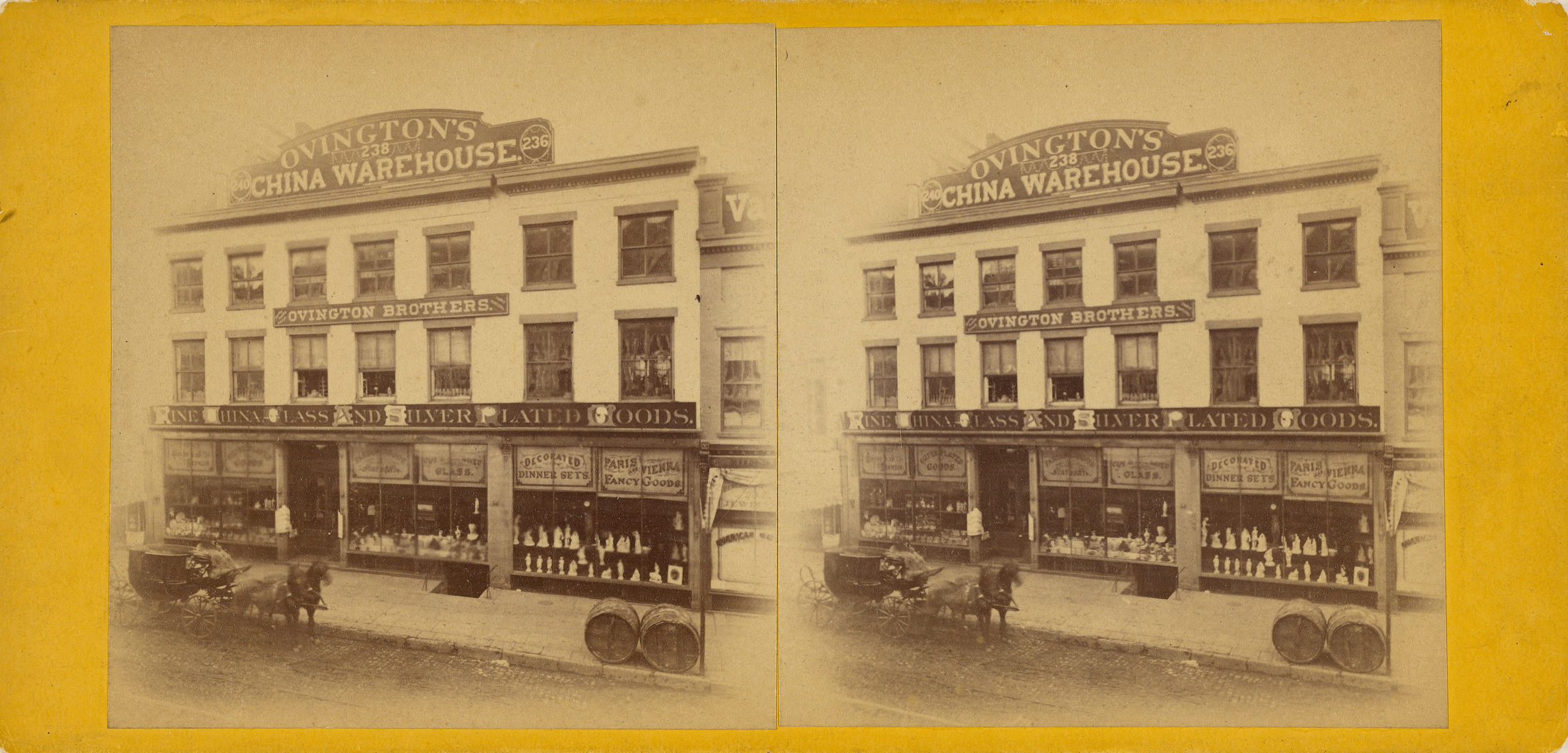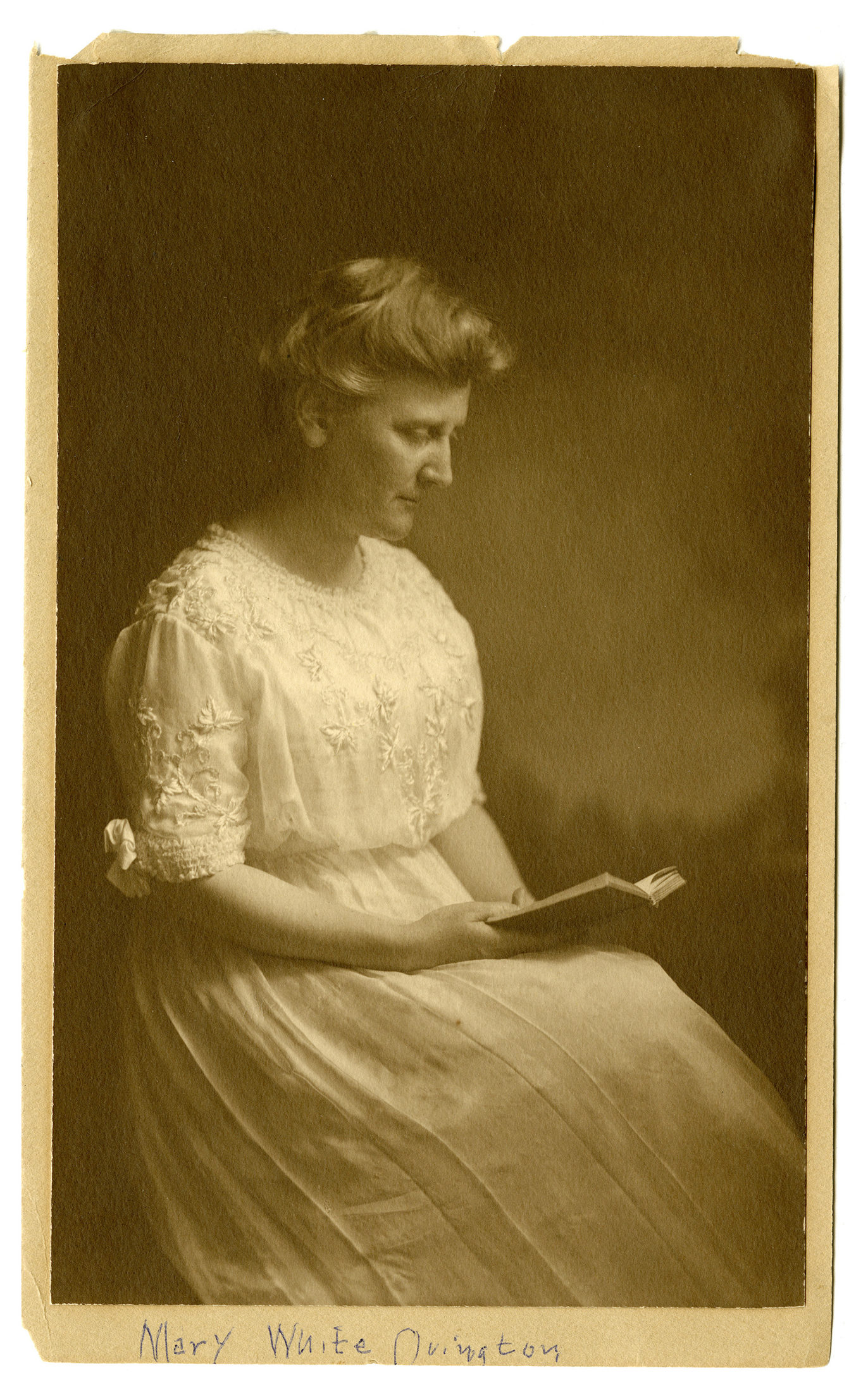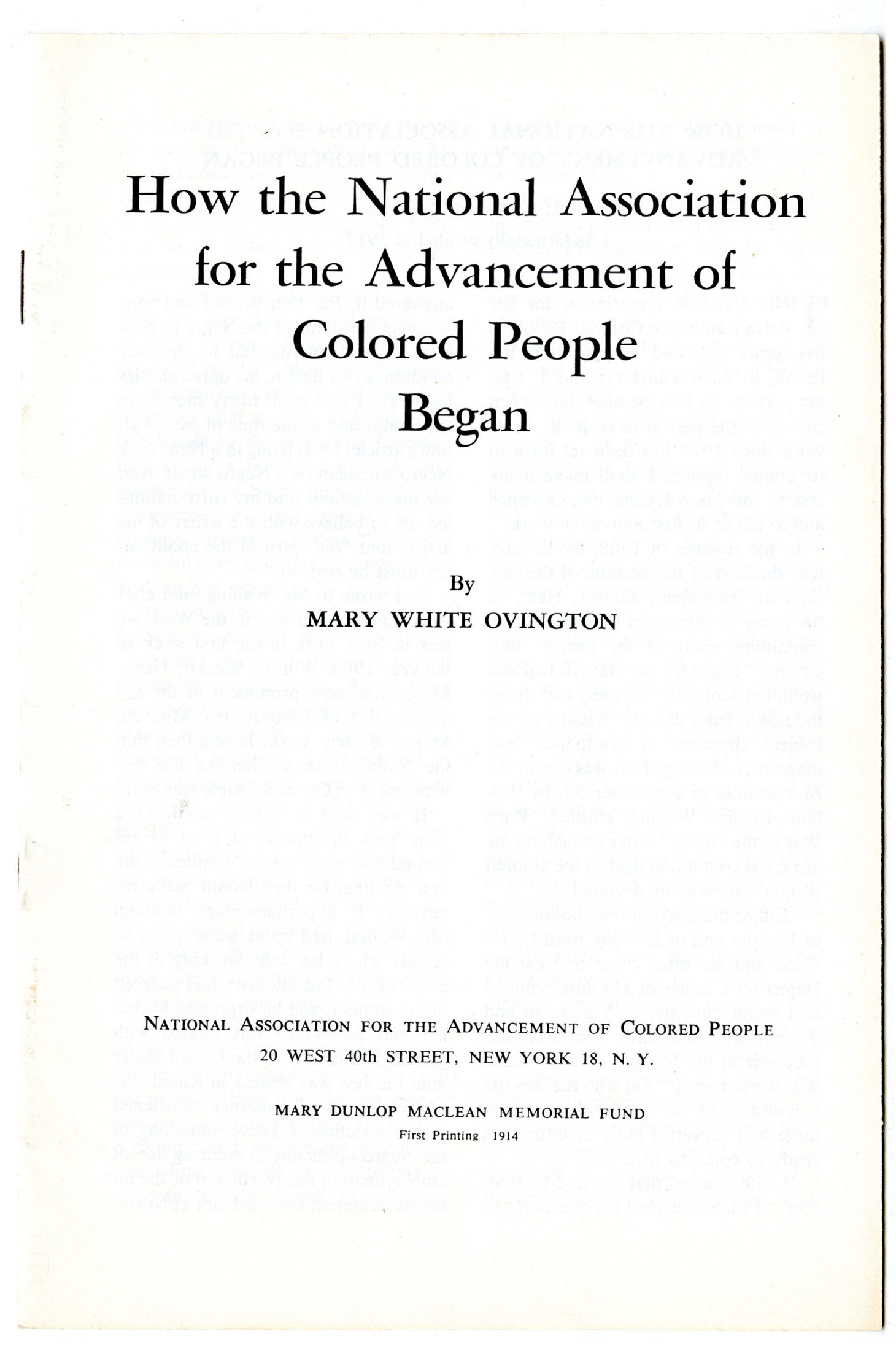A Brooklyn Family’s Social Reform Legacy
The Ovingtons and the Founding of the NAACP
Another woman from Martha’s family, her niece Mary White Ovington (1865–1951), was the best known of the Brooklyn Ovingtons.
The Ovington family roots in Brooklyn date to the early 1800s, when the region’s rising commercial interests attracted many new settlers. Henry A. Ovington, Martha’s father, settled his young family in the growing suburb of Brooklyn, purchasing a home in the Fourth Ward and a farm in New Utrecht (now the Brooklyn neighborhood of Bay Ridge). Martha was the second youngest of ten. As a child, she witnessed her older brothers become successful merchants and founders of Ovington Brothers, a popular china and home goods retailer with stores in downtown Brooklyn and Manhattan.

Exterior view of Ovington Brothers China Warehouse, 1870
A.J. Agate
Digital image courtesy of the Getty’s Open Content Program
- Paul Getty Museum
Mary White Ovington was born in 1865, daughter of Martha’s older brother Theodore and his wife, Mary. As a child, Mary likely heard Henry Ward Beecher’s progressive sermons from the family pew at Plymouth Church and learned about abolition and women’s suffrage from her parents. Like her aunt Martha, Mary graduated from Packer Collegiate Institute and began advanced studies at Radcliffe College until financial difficulties forced her to withdraw.

Mary White Ovington, 20th century
Richetta Randolph Wallace papers (1978.137)
Brooklyn Historical Society
Following a moving speech by Booker T. Washington in 1903, Mary White Ovington devoted herself to social reform causes, particularly issues of race in America and the struggles of African Americans in New York. Her observations and research resulted in the publication of Half a Man: The Status of the Negro in New York (1911), a well-known record of African American life in the Empire State.
Mary White Ovington is best known today as one of the co-founders of the National Association for the Advancement of Colored People (NAACP), formed in 1909 with early civil rights activists, including Ida B. Wells and W.E.B. Du Bois. Ovington served as the organization’s first executive secretary.

“How the National Association for the Advancement of Colored People Began,” 1914
Mary White Ovington
Richetta Randolph Wallace papers (1978.137)
Brooklyn Historical Society